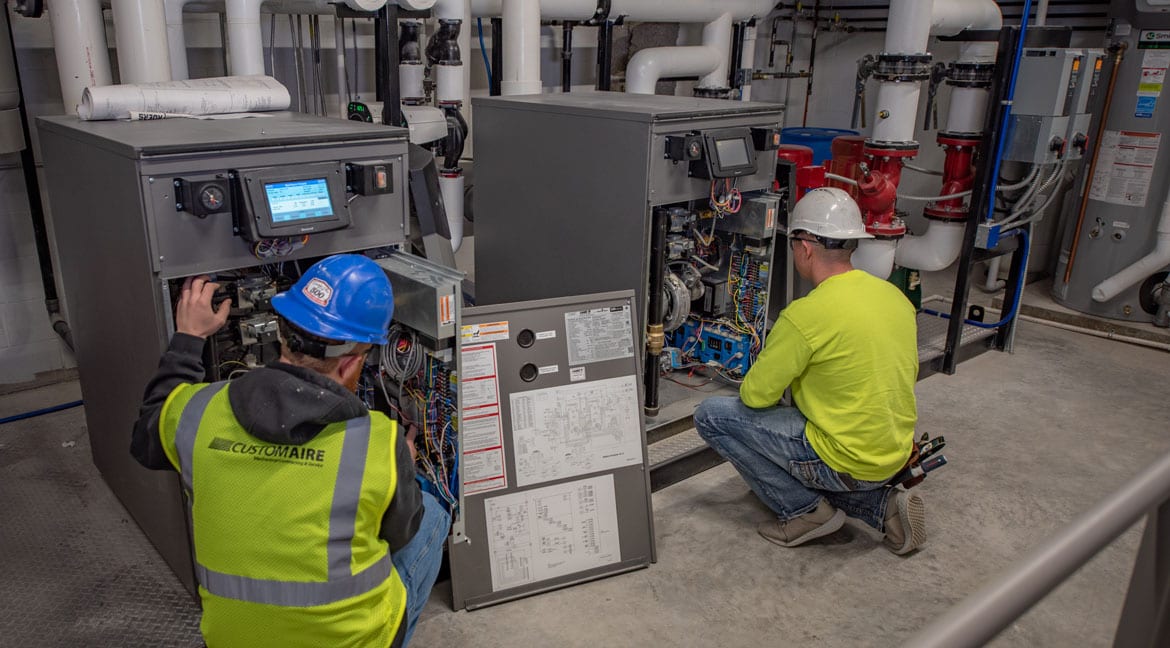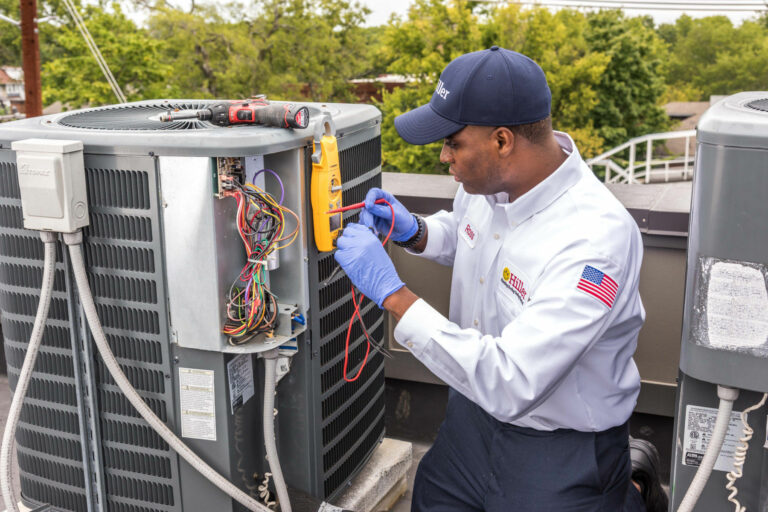Comparing Options for heat pump installation ooltewah tn
Wiki Article
Selecting Between a Warm Pump and Heater: Secret Factors To Consider for Your Cooling And Heating Requirements
When examining heating alternatives for cooling and heating requires, the decision between a warmth pump and a heater can be complicated. Each system offers unique advantages customized to certain climates and power performance objectives. Comprehending these differences is vital for making an informed option. Key variables such as installment prices and environmental impact better complicate the choice procedure. Which option really aligns with one's comfort and sustainability choices? The complying with areas will discover these factors to consider thoroughly.Comprehending Warmth Pumps: Just How They Work and Their Advantages
While many property owners consider numerous home heating options, understanding just how heatpump feature and their advantages can considerably influence their choice. Warmth pumps operate by transferring warm instead than creating it. In the winter season, they extract heat from the outdoors air or ground and transfer it inside, while in the summer season, they reverse this process, cooling the home by removing warm outside. This dual performance makes them flexible for year-round climate control.One of the primary benefits of heatpump is their power efficiency. They utilize substantially less electrical energy contrasted to conventional furnace, possibly causing lower utility expenses (heat pump installation ooltewah tn). Furthermore, heat pumps have a smaller sized carbon footprint, making them an eco friendly choice. They likewise require much less upkeep than standard systems, contributing to long-term expense savings. On the whole, comprehending the auto mechanics and advantages of heatpump can help property owners make informed choices concerning their home heating and cooling requirementsChecking Out Furnaces: Kinds, Procedure, and Advantages
Heaters can be found in different types, including gas, electric, and oil versions, each with distinctive functional mechanisms. Recognizing these distinctions is crucial, as they influence performance and home heating performance. Additionally, heaters supply countless benefits, such as constant warmth result and integrity in chillier climates.Sorts of Heaters
Home heating systems can differ significantly in design and operation, with heaters being a prominent choice amongst house owners. There are numerous types of heaters, each using different fuel resources and innovations. Gas furnaces are usual, leveraging all-natural gas to produce warm successfully. Electric furnaces, on the other hand, use electric resistance to generate heat, commonly favored for their uncomplicated setup. Oil furnaces, while much less usual, work in locations with restricted gas access (heat pump replacement ooltewah tn). Furthermore, condensing furnaces make best use of power performance by recycling and capturing exhaust gases. Each kind operates with a system of warmth exchangers and ductwork to distribute cozy air throughout a home. Understanding the distinctions between these heating system types is crucial for informed cooling and heating choicesAdvantages of Furnaces
For house owners looking for dependable heat throughout cold months, the advantages of heating systems are substantial. Heaters provide regular home heating, making sure even temperatures throughout the home. They are particularly effective in severe chilly, frequently surpassing heatpump in freezing conditions. Numerous kinds, consisting of gas, electric, and oil heaters, supply versatility to satisfy varied requirements and preferences.Furnaces likewise often tend to have reduced first installment prices contrasted to heatpump, making them an extra accessible option for many. Their robust design adds to a much longer life-span, with several devices lasting over 15 years with appropriate upkeep. Furthermore, contemporary heaters are frequently geared up with advanced technology for improved effectiveness, which can result in decreased power expenses. In general, furnaces continue to be a trustworthy choice for reliable home heating.
Power Effectiveness: Contrasting Heat Pumps and Furnaces
When contrasting power effectiveness in between heatpump and heaters, the Seasonal Energy Effectiveness Proportion (SEER) plays an important function in establishing efficiency. Furthermore, a functional cost evaluation discloses the long-term monetary ramifications of each system. Recognizing these factors can direct home owners in making informed decisions about their heating options.Seasonal Power Performance Ratio
Energy efficiency plays a vital duty in the decision-making procedure between heatpump and heaters, specifically when taking into consideration the Seasonal Energy Efficiency Ratio (SEER) This metric measures the cooling efficiency of heatpump over an entire air conditioning period, giving a standard method to evaluate performance. Greater SEER ratings show higher power efficiency, translating to reduced power usage and minimized utility bills. On the other hand, heaters are usually examined making use of the Yearly Gas Use Effectiveness (AFUE) score, which mirrors home heating effectiveness. When comparing these two systems, homeowners should focus on SEER scores for warm pumps, as they directly impact total power cost savings and environmental sustainability. An extensive understanding of SEER can significantly affect the long-lasting fulfillment and cost-effectiveness of the chosen HVAC remedy.Operational Price Evaluation
Understanding the operational prices connected with warm pumps and furnaces is essential for house owners assessing their options. Warmth pumps normally use greater energy effectiveness, converting electric energy right into warmth with very little waste. This results in reduced monthly utility bills, specifically in moderate environments. Conversely, typical heaters, especially gas models, might have reduced in advance costs yet can sustain greater operational expenses over time because of fuel costs and efficiency ratings.Moreover, heatpump can operate as both heating and cooling down systems, potentially minimizing the demand for different HVAC units. While preliminary financial investments for heatpump may be greater, their long-lasting savings in energy effectiveness can make them a much more cost-efficient selection for lots of families. Careful evaluation of neighborhood power rates is important to establish the very best choice.Installment Prices: What to Expect for Each Heating System
Setup expenses for home heating systems can differ considerably between heatpump and heaters, affecting homeowners' decisions. Warm like it pumps generally have higher upfront installation costs, normally varying from $3,500 to $8,000, relying on the unit size and complexity of installation. This consists of the outdoor unit, interior handling system, and essential ductwork modifications. Conversely, furnaces click here for more often tend to have reduced first prices, balancing in between $2,500 and $6,000, which can be appealing for budget-conscious property owners. Installment costs can boost if substantial ductwork is required.Moreover, the selection of gas type for heating systems-- natural gas, lp, or electrical-- can likewise influence installment prices. While heatpump offer energy efficiency, their first investment might discourage some purchasers. Inevitably, reviewing setup costs alongside long-term savings and performance will assist property owners in making educated decisions concerning their heating unit.Environment Considerations: Which System Carries Out Better in Your Area
Just how do climate conditions influence the performance of heating systems? The performance of heatpump and heaters can differ significantly depending upon the neighborhood climate. In moderate climates, warmth pumps excel by successfully transferring heat from the outside air, making them an energy-saving option. Their performance reduces in exceptionally chilly temperature levels, where they might struggle to remove adequate heat. Alternatively, heaters, specifically gas versions, offer reputable and regular heat no matter exterior conditions, making them more effective in chillier regions.In areas that experience milder winters months, heatpump can operate properly year-round, supplying both heating and air conditioning. On the other hand, areas with rough winters typically benefit from the effectiveness of furnaces. Ultimately, comprehending the regional environment is important when choosing in between a heatpump and a heating system, as it directly influences their operational effectiveness and general performance.Maintenance Needs: Long-Term Take Care Of Warm Pumps vs. Furnaces
While both heatpump and heating systems require normal maintenance to ensure peak efficiency, their specific needs and treatment routines vary considerably. Heaters generally require much less regular interest, with yearly examinations being enough to look for gas leakages, clean filters, and analyze general capability. Their easier design typically permits for simple repairs.In comparison, heatpump require biannual upkeep because of their double function in home heating and cooling. This consists of cleaning coils, inspecting cooling agent levels, and making certain that both the outdoor and indoor devices function at their best. In addition, heatpump maintenance usually includes even more detailed components, making expert maintenance essential.Neglecting upkeep can result in lessened efficiency and enhanced power costs for both systems. Eventually, homeowners ought to consider these lasting care needs when picking between a heat pump and a heating system, as positive upkeep can expand the life-span and performance of either system considerably.Environmental Effect: Selecting a Sustainable Home Heating Option
The environmental impact of furnace is a vital analysis for homeowners seeking lasting choices. Warm pumps are typically a lot more energy-efficient than standard heaters, as they move warm instead of produce it, considerably minimizing carbon discharges. By using renewable resource resources, such as air-source or geothermal warm pumps, house owners can additionally minimize their environmental footprint.On the other their website hand, natural gas heaters send out greenhouse gases and add to air pollution, though they typically offer higher warmth outcome. Advancements in modern technology have led to the development of high-efficiency heaters that reduce emissions.Ultimately, selecting a home heating system entails weighing efficiency versus ecological effect. Homeowners are urged to assess neighborhood energy resources and rewards for sustainable systems, guaranteeing a selection that lines up with both individual comfort and ecological responsibility. The choice impacts not just prompt comfort yet also long-lasting sustainability and environmental health and wellness.Frequently Asked Concerns
How Much Time Do Warmth Pumps and Furnaces Usually Last?
The lifespan of heatpump commonly ranges from 15 to twenty years, while furnaces can last between 15 to thirty years. Routine upkeep significantly impacts their longevity and performance in giving heating services.Can I Utilize a Warmth Pump in Extremely Cold Climates?
Warm pumps can run in exceptionally chilly environments, yet their efficiency decreases as temperatures decrease. In such problems, supplementary heating sources may be needed to keep comfy interior temperature levels and assure peak efficiency.
What Is the Noise Degree of Warmth Pumps Versus Furnaces?
The noise degrees of heatpump and heating systems vary considerably. Usually, heatpump operate even more quietly than standard furnaces, making them preferable for those conscious sound, while heaters may generate louder operational sounds during heating cycles.
Are Heat Pumps Suitable for Both Home Heating and Air conditioning?
Warm pumps are certainly ideal for both heating and air conditioning (heat pump replacement ooltewah tn). They function by moving warm, offering efficient temperature level control year-round, making them a functional choice for house owners seeking an all-in-one a/c solutionWhat Size Heater Do I Need for My Home?
Figuring out the appropriate dimension heater for a home requires examining variables such as square video footage, insulation top quality, neighborhood climate, and the home's design. Consulting a professional can assure an accurate evaluation and ideal comfort. Warm pumps commonly provide greater power efficiency, converting electrical power right into heat with minimal waste. In moderate climates, warm pumps stand out by successfully moving heat from the outside air, making them an energy-saving option. On the other hand, heaters, specifically gas models, provide regular and reliable heat no matter of outdoor conditions, making them more effective in colder regions.In areas that experience milder wintertimes, warmth pumps can operate successfully year-round, providing both heating and cooling. Warm pumps are usually more energy-efficient than traditional furnaces, as they move warmth instead than produce it, considerably decreasing carbon discharges. By utilizing renewable power resources, such as air-source or geothermal warm pumps, property owners can better decrease their environmental footprint.On the other hand, natural gas heaters send out greenhouse gases and add to air pollution, though they often provide higher heat result.Report this wiki page